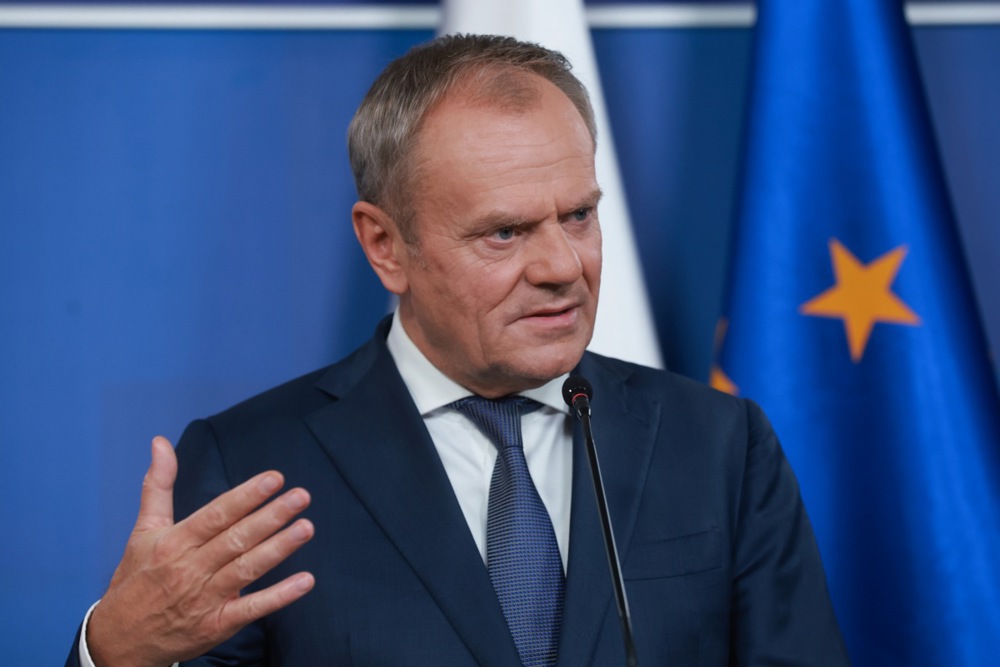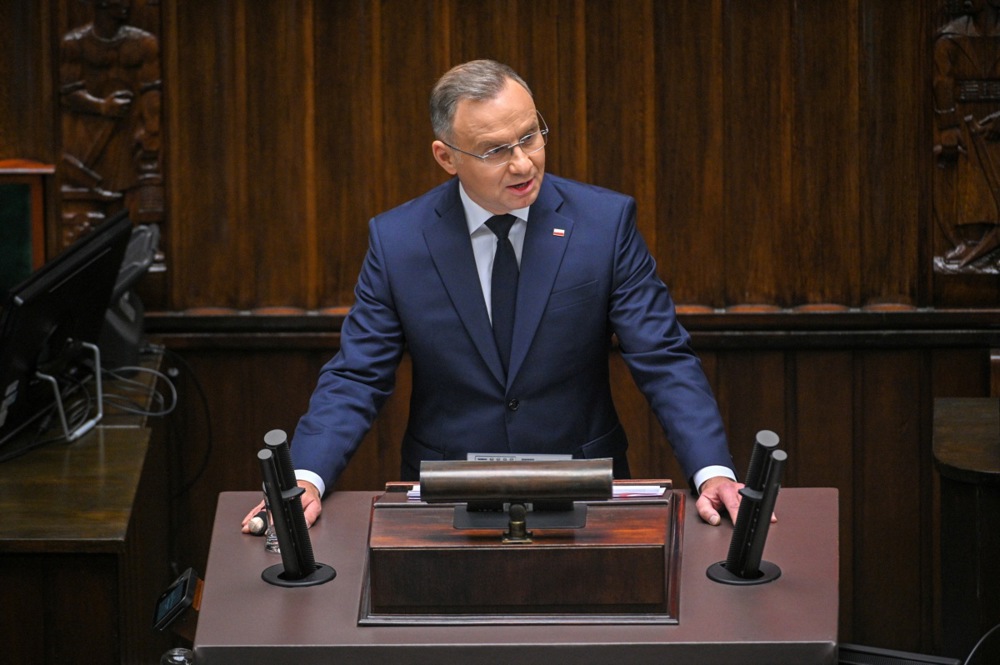Member states may begin to leave the European Convention on Human Rights (ECHR) if there is no agreement on migration reform, according to Polish Prime Minister Donald Tusk.
“If the 46 signatories of the Convention cannot reach an agreement on its reform, then a perfectly reasonable solution is to simply withdraw from it,” Tusk told the Sunday Times in an interview published yesterday.
He spoke of migration as the greatest threat facing the west and the European Union. He pointed to the increasingly difficult ethnic and cultural relations within European societies, adding that the management of migration is hampered by the overly restrictive human rights regime enshrined in the ECHR.
“Yesterday I spoke for an hour with, among others, Giorgia Meloni [Prime Minister of Italy] and Mette Frederiksen [Prime Minister of Denmark] about the possibility of deporting convicted criminals, rapists or terrorists.
“In some countries, this is still impossible due to court rulings, according to which, human rights are much more important than security,” said Tusk.
Poland, Italy and France are pushing for reform of the ECHR, which oversees compliance with the Convention.
His stance was criticised as opportunistic by Liberal portal Okopress which called it “an extreme form of populism”.
Patryk Słowik of the news site Wirtualna Polska accused Tusk of inconsistency.
“Claiming that your political opponents support Russia one day and to consider withdrawing from the European Convention on Human Rights the next takes some gall,” he wrote on X.
Tusk has accused Poland’s right-wing opposition parties of being pro-Russian. That is despite the fact that the main opposition Conservatives (PiS) had opposed Tusk’s support for then-US president Barack Obama’s “reset” of relations with Russia.
Słowik criticised Tusk for throwing the baby out with the bathwater with regard to the PM’s remarks on the ECHR as the Convention guarantees freedom of speech and the right to a fair trial, which protects human rights.
He also pointed to the fact that Tusk has, when in opposition, sought ECHR judgments against the then-ruling PiS and has repeatedly cited its case law to support his policies on overturning the PiS’ judicial reforms.
When in opposition, Tusk had opposed fortification of the border with Belarus and appealed for humanitarian treatment of illegal migrants crossing that frontier.
Since returning to office in late 2023, he has increased fortification on the border and stopped admitting asylum claims at the frontier with Belarus. He has also attacked the PiS for having let hundreds of thousands of migrants into the EU on work and Schengen visas.
Despite its candidate losing the presidential election this spring, Tusk’s party has of late seen an uplift in the opinion polls as it has squeezed support out of its coalition partners and received public backing for its decision to shoot down Russian drones last month. Meanwhile, the right-wing PiS and the Confederation Party have fallen out over whether to coalesce in future.
Current polls show Tusk’s party polling between 32 and 38 per cent and the PiS with support in the range between 27 and 31 per cent.
One poll showed that if all the parties in the present governing coalition – Tusk’s Civic Coalition, the centrist Poland 2050, the centre-right Polish People’s Party and the Left party – stood on one electoral slate, they would get 47 per cent of the vote and an overall parliamentary majority.





